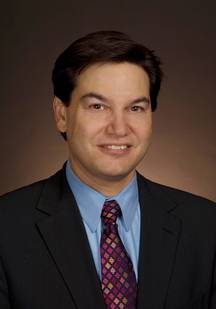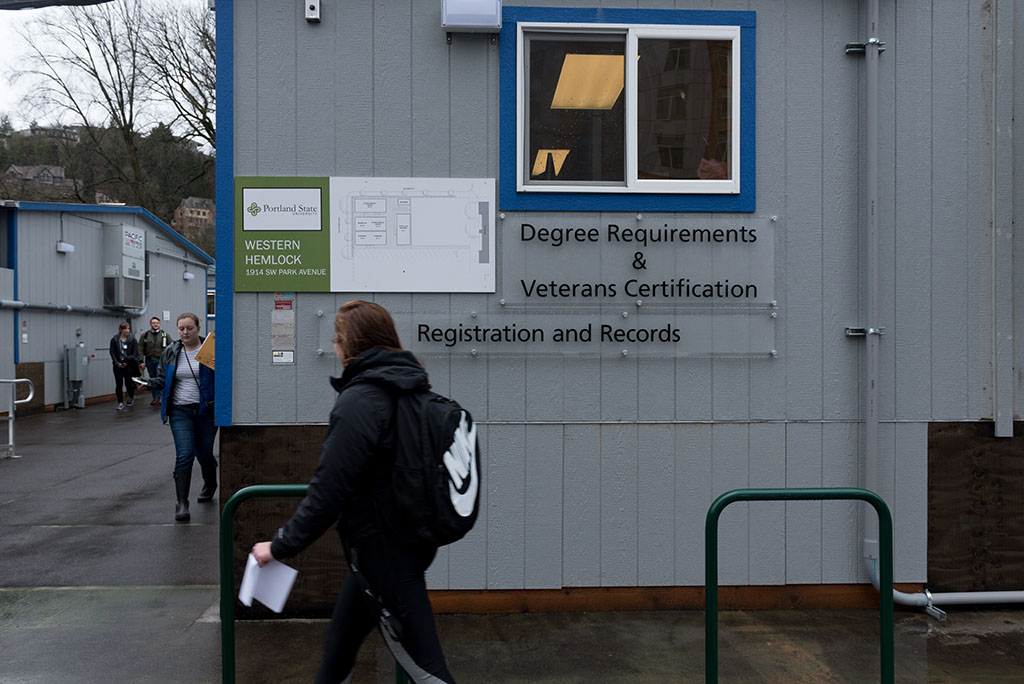Jonathan Koppell is one of three candidates for the next Portland State president, with current President Wim Wiewel set to leave PSU at the end of the 2017 academic year for a one-year sabbatical and return as a professor.
Koppell was born in New York City to a politician father and college professor mother. His career has put him someplace in the middle of that. He received both his Ph.D. and M.A. in political science from the University of California, Berkeley, and has been the dean of the College of Public Service & Community Solutions at Arizona State University since 2011.
“I always viewed the reason that a person exists on earth is to do something to make the world a better place and to serve other people in your community,” Koppell said. “I saw orienting the university around its public purpose as being a form of public service, and if you harness the power of the university to be a difference maker—to solve problems, to open doors to education to the broadest possible range of the population—you can think of that as a really powerful way to make a difference in the world.”
“The university ought to see the health of the community as a critical part of its mission. That’s not a hard sell for Portland State; it’s in the motto,” Koppell said.
Before his dean role, Koppell served as director of the School of Public Affairs at ASU and director of Millstein Center for Corporate Governance & Performance at Yale University.
Koppell’s academic career has had a focus on globalization concerns. He has written two books, one titled World Rule: Legitimacy, Accountability and the Design of Global Governance, published by the University of Chicago Press. The book explores global interconnectedness, global governance organizations, climate change and financial meltdowns around the world.
“A good portion of my academic work has been understanding institutions and how they shape the world around us,” Koppell said. “We speak about globalization and we speak about internationalization of the student experience, but I don’t know that there is a lot of attention to why. I would argue that the answer, and this directly relates to my research, is that to be an effective citizen, political activist, business person, artist, human being in the 21st century requires an understanding of the processes and entanglements that extend far beyond our local community [and] involve people all over the country and all over the world. And quite frankly, you won’t be effective if you don’t have an appreciation for how these different realms interact.”
He has also written various book chapters, one called “Global rule making and institutional forms.” Koppell has been published in many research journals and major news outlets, often editorials.
During his tenure as dean, Koppell improved the quality of the university, which includes improved diversity, enrollment, fundraising and development. Koppell also “initiated and implemented re-naming and re-branding of the college to create unifying identify and mission,” according to his resume.
Koppell also discussed the need for communication between students and administration. “[It] shouldn’t be reserved for times of crisis,” Koppell said. “If there is regular communication, the goal would be to get student objectives and faculty objectives and staff objectives and community objectives all in alignment. Communication between student leadership and the university shouldn’t be seen as an adversarial proceeding, it should be seen as a place where different constituencies of the university, all of whom ultimately share the goal of making Portland State the best possible institution in providing the best possible learning experience for the students, get on the same page in how they are pursuing that shared goal.”
Koppell has also helped in the expansion of ASU’s online class format which included more than 20 new degree programs within the College of Public Service & Community Solutions in the last four years including emergency management and homeland security, program evaluation, community advocacy and social policy.
“He has emphasized the transcendent focus on ‘public goods’ that unifies the specializations of college’s four distinct schools (criminal justice, community development, public administration and policy, and social work) while connecting the college to the broad range of relevant ASU programs,” according to his ASU biography.
“I think universities need to put student success at their core,” Koppell said. “It has to be a point of absolute focus for every university to see students succeed. That success shouldn’t end at graduation. Your education should be preparing you to succeed in your job, in your life, in your community and ultimately your preparation should be not just for the year after you graduate or your first job. It should be preparing you to learn for the rest of your life. The facts and the technologies, and the things that are important today are probably not going to be the same in 20 years.”
“Are you prepared to be a learner who takes new challenges, who solves new problems 10 years from now, 20 years from now, 30 years from now?” Koppell asked.






